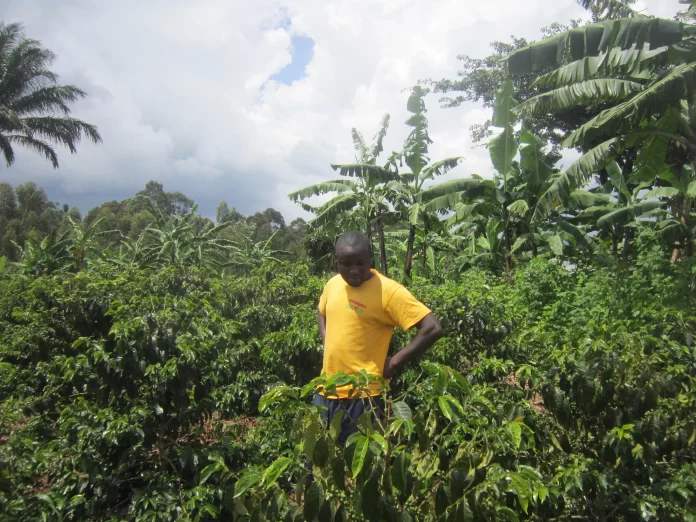Coffee as an important cash crop to many Ugandan farmers for many years has improved livelihoods and boosted the economy, with the Coffee Development Authority registering an increase of 2.42% in 16.91% in quantity and value, respectively, by March 2024.
The Uganda coffee farming sector, amongst all its added value to the economy, doubles as a sustainable approach to enhance agricultural productivity and has gained attraction for its role in addressing environmental challenges.
Coffee farming regenerative agriculture in Uganda focuses on restoring and enhancing soil health, biodiversity, and water resources, which aims to improve crop resilience and increase the overall productivity of coffee farms by implementing practices that promote ecological balance and sustainability.
The planting practices of inter-planting coffee trees with other trees increase biodiversity and natural carbon confiscation, minimize soil disruption that reduces soil erosion and retaining water in soil, organic farming as a holistic approach that emphasizes soil health, and organic waste turned into valuable compost, a process that enriches the soil and reduces the need for chemical fertilizers.
The practice, which involves coffee farms integrating various crops like vanilla, macadamia, and bananas, guarantees early successes in yield improvement and environmental benefits.
However, the effectiveness of the system is closely associated with training coffee farmers in regenerative practices to enhance climate resilience and improve livelihoods.
In Uganda, over 1.8 million households are engaged in coffee farming that has promoted training of farmers in agroforestry, business skills, and sustainability.
Read Also: Bishop Ahimbisibwe Transforms South Ankole Diocese through Coffee Farming
By adopting regenerative agriculture techniques, farmers are exposed to increased yields and diversified income sources that increased from 20–30% for participating farmers due to improved farming practices.
These practices contribute to soil restoration, enhanced biodiversity, reduced greenhouse gas emissions, and improved water management. They also help mitigate the effects of climate change on coffee production by fostering a more resilient farming system.
The shift towards regenerative agriculture in Uganda’s coffee sector is not only beneficial for the environment but also enhances the livelihoods of smallholder farmers, which has offered a promising model for sustainable coffee production that inspires similar efforts across the region.















